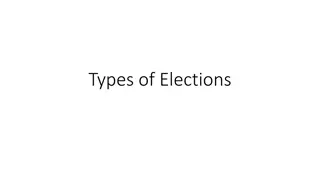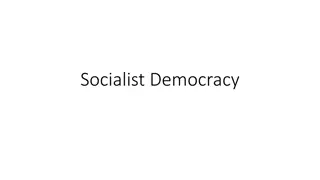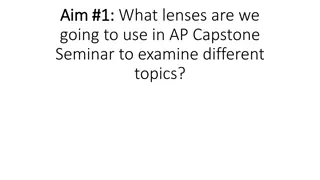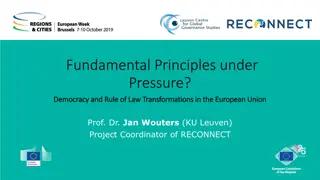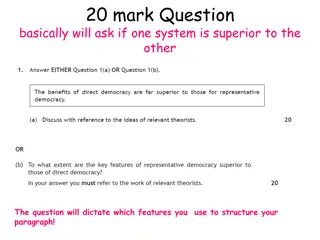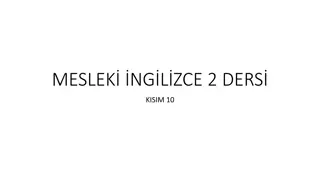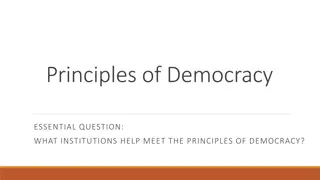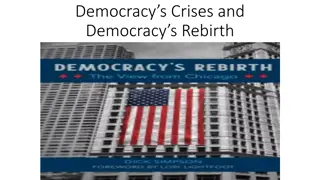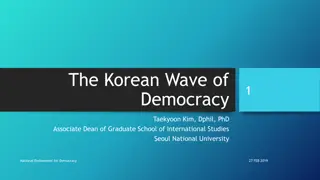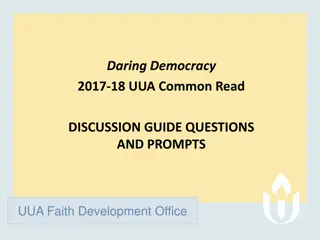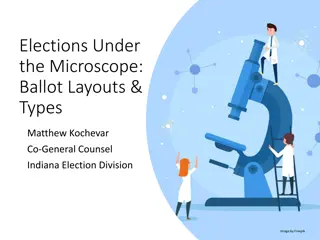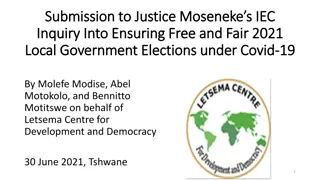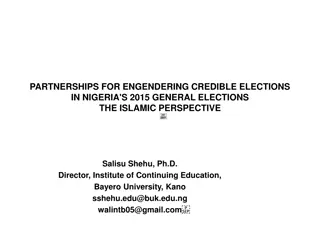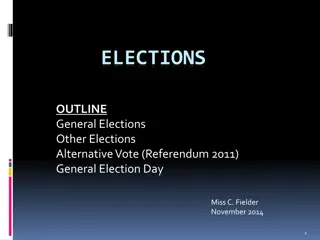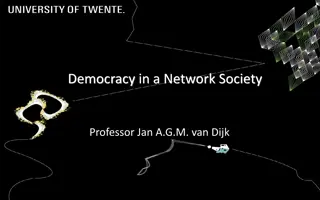Democracy in the EU and Upcoming European Elections Overview
Explore key findings on the state of democracy in the EU, upcoming European elections, and global trends. Europe remains a high-performing region, with Central Europe showing notable democratic growth. Discover how the EU acts as a countervailing institution and challenges faced by strong democracies. Stay informed on anti-democratic forces targeting electoral integrity in the European Parliament elections.
Download Presentation

Please find below an Image/Link to download the presentation.
The content on the website is provided AS IS for your information and personal use only. It may not be sold, licensed, or shared on other websites without obtaining consent from the author.If you encounter any issues during the download, it is possible that the publisher has removed the file from their server.
You are allowed to download the files provided on this website for personal or commercial use, subject to the condition that they are used lawfully. All files are the property of their respective owners.
The content on the website is provided AS IS for your information and personal use only. It may not be sold, licensed, or shared on other websites without obtaining consent from the author.
E N D
Presentation Transcript
Democracy in the EU, and upcoming European elections Sam van der Staak, Director for Europe, International IDEA idea.int
In 2024, half the global population/4bn people will be able to vote: 450 mln Europeans Source: Foreign Policy
Global democracy in decline Democratic decline impacts half of all countries
Key Europe findings Key Europe findings idea.int
1. Central Europe the epicentre of democratic growth Notable five-year increases in 8 countries: Bulgaria, Czechia, Kosovo, Latvia, Lithuania, North Macedonia, Romania, and Slovakia. Slovenia experienced a remarkable one- year democratic rebound.
2. The EU as key countervailing institution Mobilized intra-EU unity on support and aid for Ukraine; Protected democratic norms in its member states; Revived the enlargement process.
3. Declines in the scores of strong democracies Notable decreases in Austria, Luxembourg, Netherlands, Portugal, United Kingdom Most commonly in the Rule of Law (especially Predictable Enforcement) and Freedom of the Press.
European Parliament Elections: whats at stake? Anti-democratic forces trying to abuse EU openness and polarization. To undermine electoral integrity, including online. 1. Russia, Iran, China: disinfo & cyber attacks 2. Domestically: online election campaigns (disinfo, data privacy) Further fueled by: new technologies: Artificial Intelligence few rules, little oversight
What can we do to safeguard the EP elections? 1. Encourage member states to invest in online oversight. 2. Encourage political parties to commit to integrity of online campaigns (Codes of Conduct). 3. Citizens: be vigilant on integrity of online campaigns
Democracy in the next European Commission Employers, workers, civil society call upon EU leadership to make democracy top- priority 2024-2029, internally and externally. Double opportunity: internally: Hungary sole backslider (article 7), opportunity to step up internal RoL agenda. externally: global backsliding leaves a gap for leader of the free world .
Our companies thrive on freedom, on freedom to innovate and to invest and to compete. But freedom in businesses relies on the freedom of our political systems and this is why I believe strengthening our democracy and protecting it from the risks and interference it faces is our common and enduring duty. In a democracy, it is the people with their choices and behaviours who pick winners and losers in the economic arena Ursula Von der Leyen, WEF 2024
THANK YOU Sam van der Staak, Director for Europe, International IDEA @samvanderstaak idea.int


